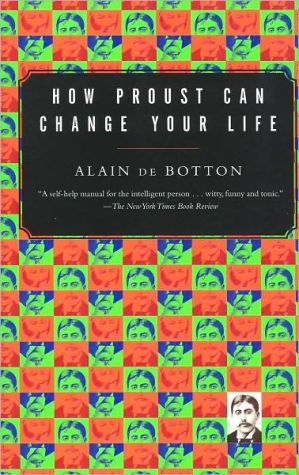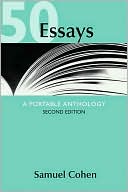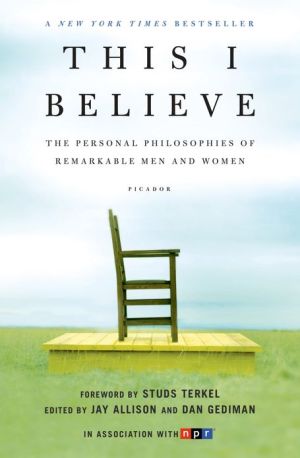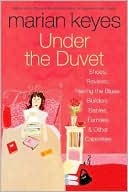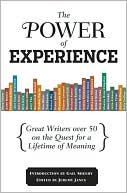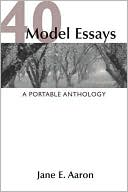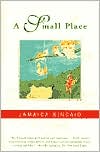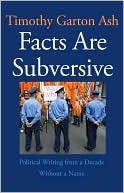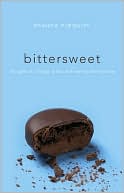How Proust Can Change Your Life
Alain de Botton combines two unlikely genres—literary biography and self-help manual—in the hilarious and unexpectedly practical How Proust Can Change Your Life.\ Who would have thought that Marcel Proust, one of the most important writers of our century, could provide us with such a rich source of insight into how best to live life? Proust understood that the essence and value of life was the sum of its everyday parts. As relevant today as they were at the turn of the century, Proust's life...
Search in google:
Alain de Botton combines two unlikely genres—literary biography and self-help manual—in the hilarious and unexpectedly practical How Proust Can Change Your Life.Who would have thought that Marcel Proust, one of the most important writers of our century, could provide us with such a rich source of insight into how best to live life? Proust understood that the essence and value of life was the sum of its everyday parts. As relevant today as they were at the turn of the century, Proust's life and work are transformed here into a no-nonsense guide to, among other things, enjoying your vacation, reviving a relationship, achieving original and unclichéd articulation, being a good host, recognizing love, and understanding why you should never sleep with someone on a first date. It took de Botton to find the inspirational in Proust's essays, letters and fiction and, perhaps even more surprising, to draw out a vivid and clarifying portrait of the master from between the lines of his work.Here is Proust as we have never seen or read him before: witty, intelligent, pragmatic. He might well change your life.Publishers WeeklyGenerally writers fall into one of two camps: those who feel that one can't write without having a firm grasp on Proust, and those who, like Virginia Woolf, are crippled by his influence. De Botton, the author of "On Love, The Romantic Movement" and "Kiss and Tell", obviously falls into the former category. But rather than an endless exegesis on memory, de Botton has chosen to weave Proust's life, work, friends and era into a gently irreverent, tongue-in-cheek self-help book. For example, in the chapter titled "How to Suffer Successfully," de Botton lists poor Proust's many difficulties (asthma, "awkward desires," sensitive skin, a Jewish mother, fear of mice), which is essentially a funny way of telling the reader quite a lot about the man's life. Next he moves on to Proust's little thesis that because we only really think when distressed, we shouldn't worry about striving for happiness so much as "pursuing ways to be properly and productively unhappy." De Botton then cheerily judges various characters a la recherch against their author's maxims. At the beginning, when de Botton drags his own girlfriend into a tortuous and not terribly successful digression, readers may be skeptical, but they will be won over by his whimsical relation of Proust's lessons-essentially an exhortation to slow down, pay attention and learn from life. Is it profound? No. Does this add something new to Proust scholarship? Probably not. But it's a real pleasure to read someone who treats this sacrosanct subject as something that is still vital and vigorous.
Following is an excerpt from Chapter 8, "How to be Happy in Love":\ Q: Did Proust have any relevant thoughts on dating? What should one talk about on a first date?\ A: Advice is scant. A more fundamental doubt is whether one should accept dinner in the first place.\ There is no doubt that a person's charms are less frequently a cause of love than a remark such as: "No, this evening I shan't be free."\ If this response proves bewitching, it is because of the connection made...between appreciation and absence. Though a person may be filled with attributes, an incentive is nevertheless required to ensure that a seducer will focus wholeheartedly on these, an incentive which finds perfect form in a dinner rebuff.\ Q: Was he against sex before marriage?\ A: No, just before love. And not for any starchy reasons, simply because he felt it wasn't a good idea to sleep together when encouraging someone to fall in love was a consideration.\ Women who are to some extent resistant, whom one cannot possess at once, whom one does not even know at first whether one will ever possess, are the only interesting ones.\ Q: Surely not?\ A: Other women may of course be fascinating, the problem is that they risk not seeming so...\ Q: Are there any secrets to long-lasting relationships?\ A: Infidelity. Not the act itself, but the threat of it. For Proust, an injection of jealousy is the only thing capable of rescuing a relationship ruined by habit...The threat of losing their partner may lead them to realize that they have not appreciated this person adequately...If someone threatens the relationship, they get jealous, wake up for a moment, have another kiss with the horny tusk, and get bored once more. Condensed into a male heterosexual version, the situation runs like this:\ Afraid of losing her, we forget all the others. Sure of keeping her, we compare her with the those others whom at once we prefer to her.
\ Publishers Weekly\ - Publisher's Weekly\ Generally writers fall into one of two camps: those who feel that one can't write without having a firm grasp on Proust, and those who, like Virginia Woolf, are crippled by his influence. De Botton, the author of "On Love, The Romantic Movement" and "Kiss and Tell", obviously falls into the former category. But rather than an endless exegesis on memory, de Botton has chosen to weave Proust's life, work, friends and era into a gently irreverent, tongue-in-cheek self-help book. For example, in the chapter titled "How to Suffer Successfully," de Botton lists poor Proust's many difficulties asthma, "awkward desires," sensitive skin, a Jewish mother, fear of mice, which is essentially a funny way of telling the reader quite a lot about the man's life. Next he moves on to Proust's little thesis that because we only really think when distressed, we shouldn't worry about striving for happiness so much as "pursuing ways to be properly and productively unhappy." De Botton then cheerily judges various characters a la recherch against their author's maxims. At the beginning, when de Botton drags his own girlfriend into a tortuous and not terribly successful digression, readers may be skeptical, but they will be won over by his whimsical relation of Proust's lessons-essentially an exhortation to slow down, pay attention and learn from life. Is it profound? No. Does this add something new to Proust scholarship? Probably not. But it's a real pleasure to read someone who treats this sacrosanct subject as something that is still vital and vigorous.\ \ \ \ \ Library JournalHere's an antidote for readers paralyzed by the anxiety of influence. Novelist and literary biographer de Botton "Kiss & Tell", "Picador", 1996 sets out to exorcise the influence of Marcel Proust, using the words of the great French author of "In Search of Lost Time" most engagingly for and against him. In the process, de Botton fashions a hilarious work of authorial self-help. Like Julian Barnes in his Flaubert's Parrot, de Botton knows his author intimately, from what newspaper snippets he would have read each morning to what he and James Joyce said to each other the one time they met "Non.". In pithy sections, spliced with kitschy photos and plenty of white space, he takes on Proust's personal and writerly idiosyncrasies: the length of his sentences; his loving devotion to minutiae; his elevation of the quotidian; his hypochondria. De Botton might not make us better people he quotes the perennially miserable Proust on love in a Q-and-A format: "how to be happy in love", but he will make us more careful readers. For all literature collections. Amy Boaz, "Library Journal"\ \ \ Kirkus ReviewsFor the era of the self-help bestseller, novelist de Botton delivers a witty, entertaining literary appreciation of the author of "Remembrance of Things Past."\ Can you find real-life lessons in one and a half million words spread over seven volumes, written by a hypochrondriacal asthmatic Frenchman who divided his life almost exclusively between dinner parties and bed rest? De Botton says you can, whether "How to Love Life Today" or "How to Suffer Successfully." De Botton has self-consciously mixed genres in his fiction, e.g., biography and the novel in "Kiss and Tell" (1996), which hinted at his Proust worship. This blend of literary criticism by both de Botton and Proust, snippets from "Remembrance of Things Past", biographic tidbits, and self-improvement pastiches is not as unserious as it appears. Proust, after all, was an almost-epigone of John Ruskin—the embodiment of seriousness about art in one's life—as well as of philosopher Henri Bergson (who goes, thankfully, unremarked). De Botton even turns up a gem of Proust's miscellaneous criticism in an essay on the artist Chardin, whose closely observed paintings of ordinary people and objects Proust recommends as an aesthetic tonic to an imaginary depressed "young man of limited means and artistic tastes." Elsewhere de Botton discusses the hang-ups of Proust's characters Mme. Verdurin and Charles Swann, Proust on love, and the verb "to proustify" ("to express a slightly too conscious attitude of geniality, together with what would vulgarly have been called affectations"). Quoted selectively, Proust himself proves aphoristic—"In reality, every reader is, while he is reading, the reader of his own self."\ For a painless crib, de Botton's tongue-in-cheek tract beats out Harold Bloom on the Western canon and David Denby on Great Books without even a madeleine break.\ \ \ \ \ \ Library JournalWhile it is often said that a great work of fiction can educate readers about themselves and the world around them, these days, many audiences prefer a different type of work—the self-help book. Here, Swiss author de Botton (www.alaindebotton.com) combines the two genres, using Marcel Proust's monumental masterwork, In Search of Lost Time (earlier translated as Remembrance of Things Past), as a framework for a cleverly written, often humorous guide to self-improvement. This is not a bad book, though it is certainly not the gateway to great literature one might have hoped for or expected. British actor Nicholas Bell narrates in a clear, dry style that is admirably suited to the text. Recommended for individuals seeking an amusing listen; definitely not for Proust scholars or literary snobs. [The Pantheon hc, published in 1997, was an international best seller; an alternate recording of this title, read by Samuel West, is available from CSA Word.—Ed.]—I. Pour-El, Des Moines Area Community Coll., Boone, IA\ \
